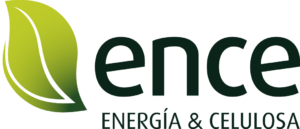- Commitment to the circular economy and environmental care. The project, which will not use wood, will employ recycled cardboard and paper as raw materials and will have minimal water consumption.
- Renewable energy. The plant will be self-sufficient in renewable energy, generated from by-products of the local forestry industry, and will not use fossil fuels.
- Commitment to a just transition. The new facility is an example of commitment to the community and a just transition, as it will be located on industrial land from a former coal-fired power plant.
The Xunta de Galicia has granted the Integrated Environmental Authorization (IEA) to Ence’s bleached recycled fiber bioplant in As Pontes (A Coruña), as detailed in the Official Gazette of Galicia. This represents a strategic step for the company in driving forward this initiative, which was declared a strategic industrial project by the Xunta de Galicia in 2023.
With the IEA, Ence will develop a globally pioneering facility to produce bleached recycled fiber from recovered paper and cardboard. In doing so, the company gives a second life to these materials, fully aligning with the principles of the circular economy.
In the design of this project—the first of its kind in Europe to manufacture bleached recycled fiber from recycled paper and cardboard—Ence’s commitment to energy independence has been a key factor. The plant will be self-sufficient in renewable energy, generated from by-products of the local forestry industry, and will not use fossil fuels.
Community commitment
Ence’s biofactory will be the first facility in the sector to use totally chlorine-free (TCF) bleaching technology applied to recycled fibers, turning paper and cardboard waste into high-value-added products.
The new facility also exemplifies commitment to the community and a just transition, as it will be located on industrial land formerly used for a coal-fired power plant.
Regatex: an innovative textile recycling system
In parallel with the recycled fiber bioplant, Ence is also launching a textile recycling pilot plant, Regatex, which will create an innovative textile recycling system.
As part of this initiative, the company signed a strategic partnership in 2024 with Swedish startup Sharetex. This agreement represents a major advancement in sustainable material management, as both companies have succeeded in producing recycled cellulose from polycotton—a fabric made of cotton and polyester blends commonly found in garments.
This material has until now been difficult to process efficiently. This innovation will be key to scaling textile recycling systems in the sector.
